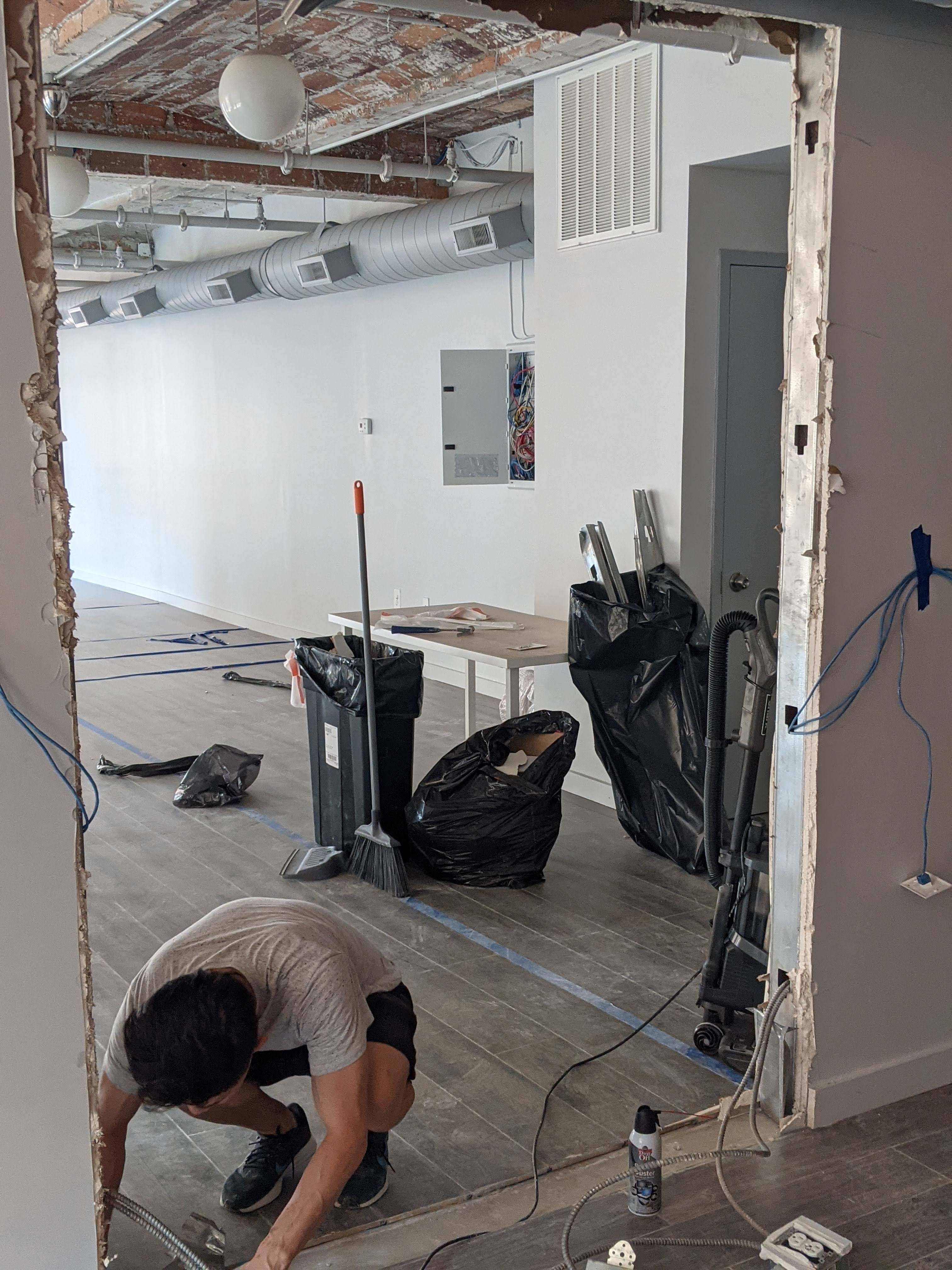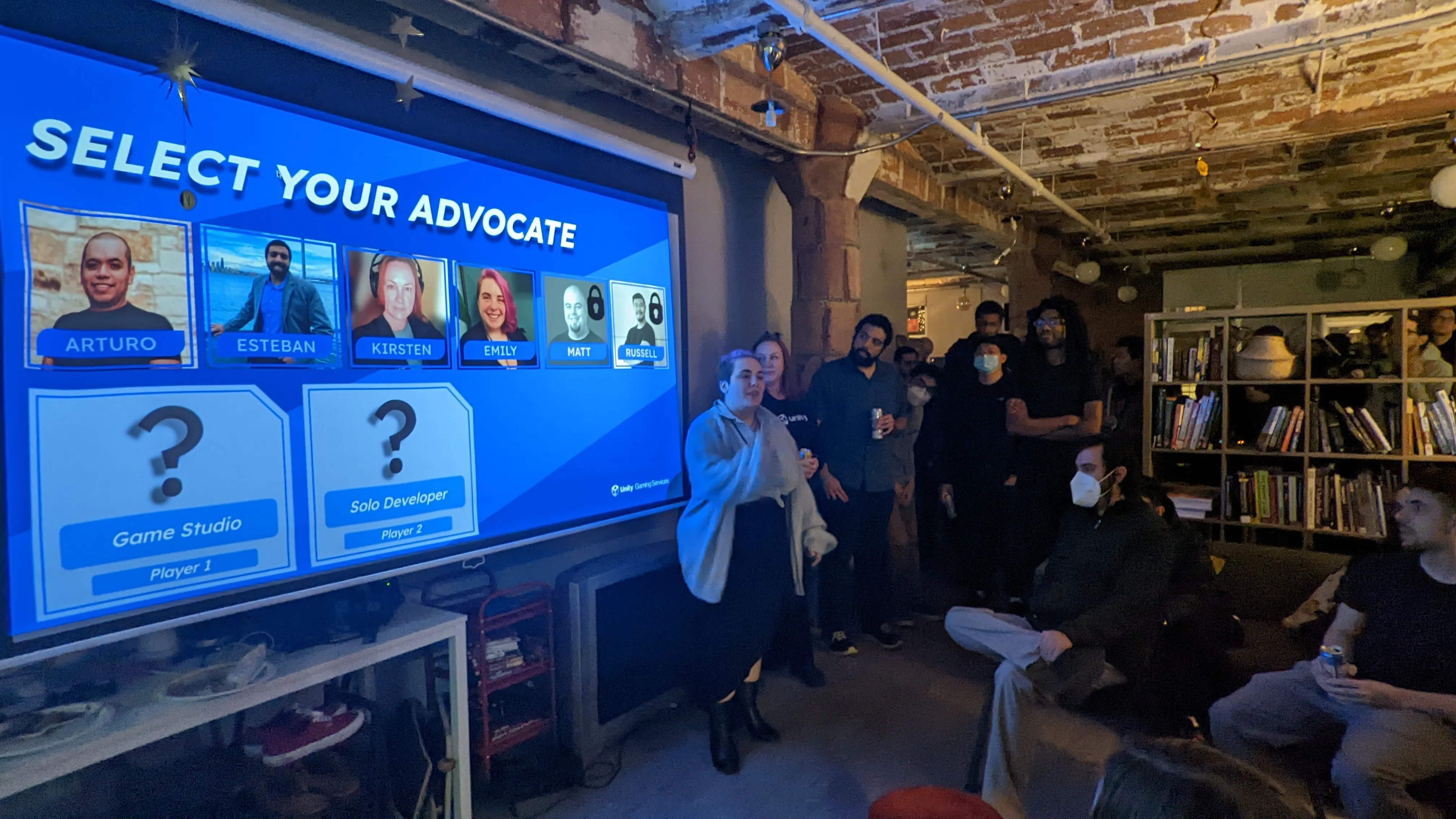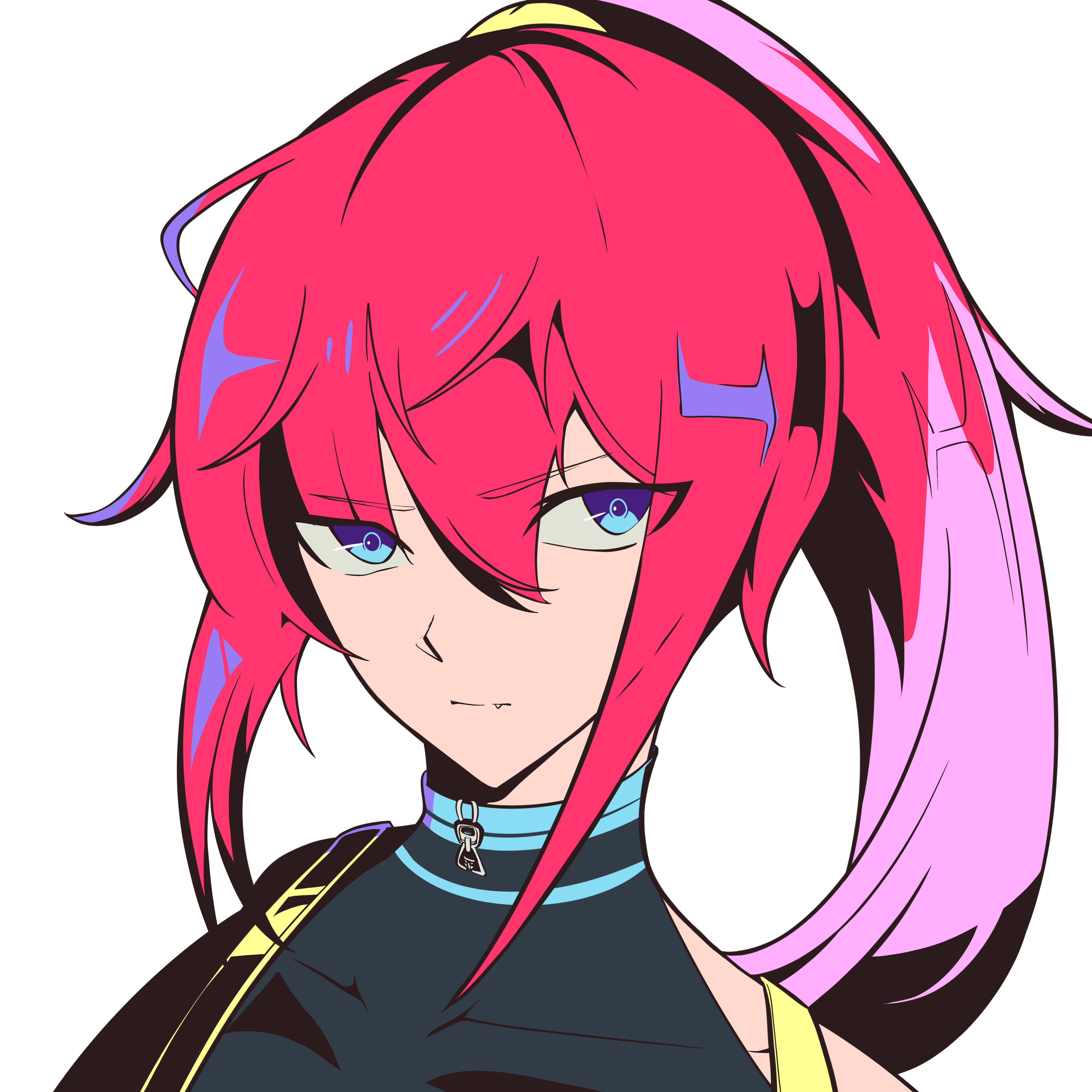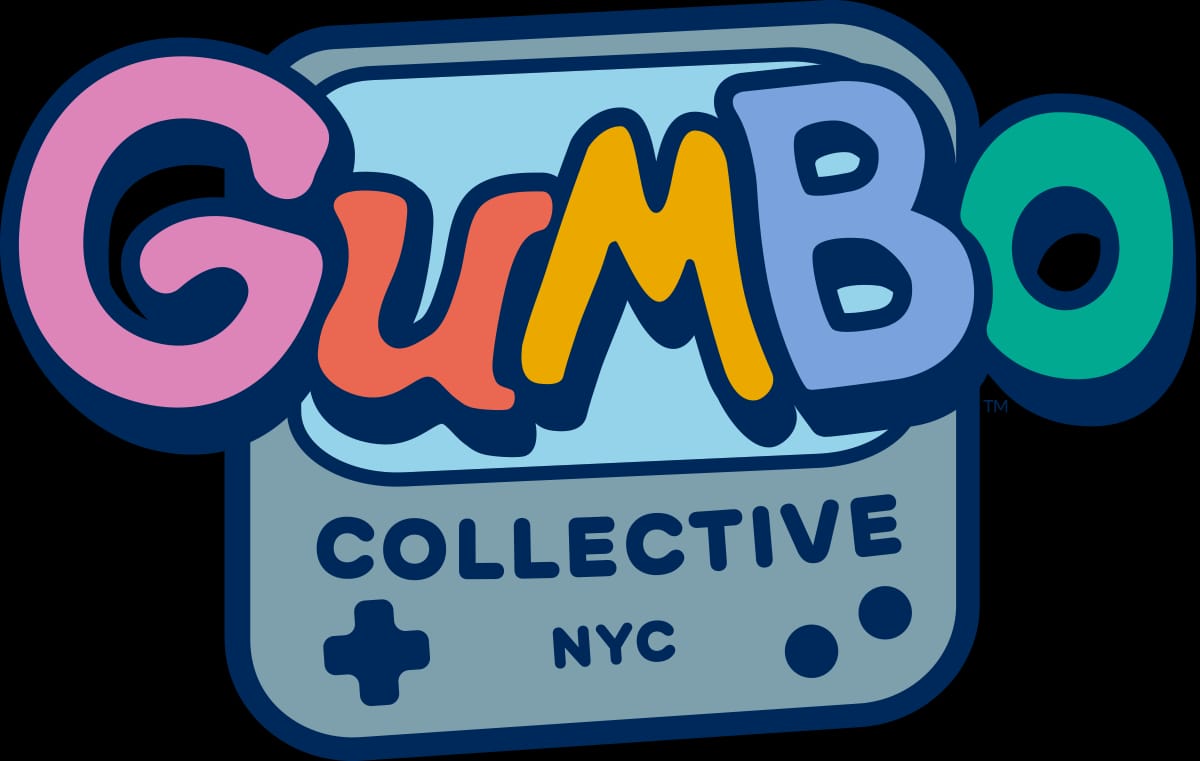Nestled in the heart of Dumbo, Brooklyn, exists a non-profit and unique space for game developers to work, connect and collaborate. Games Under The Manhattan Bridge Overpass, or Gumbo, is the name of this indie game-forward organization. It’s a play on the name of their location but also a testament to their humble beginnings and independent roots.
The Early Days of Gumbo
It’s tricky to pinpoint precisely the origins of Gumbo, because of the disparate communities and initiatives that eventually came together to be what Gumbo is today. At the beginning, it was a group of developers working at another co-working space and catching up informally to keep each other in check. In parallel, Yiyi Zhang, a current Gumbo Collective board member, was also running the largest New York City MeetUp group for indie game developers. Death by Audio Arcade, a non-profit building indie arcade cabinets, is also said to have been involved.
Ultimately, it took a global pandemic, rising rental costs at their current coworking space, and a desire to have a place truly to their own, that the physical space of Gumbo began to take shape.
“We found a location just two blocks away from the original coworking space. It had a huge open area, lots of exposed brick and floor to ceiling windows, it was awesome,” says Vinit Shah, Board Member of Gumbo Collective.

“Building out the space was our Hail Mary. To get it started, we needed at least ten people to commit to the lease for one year. We managed to do that but we had no furniture, no sinks – nothing. People started bringing in couches they found on the street. All of the renovations we did with our own hands, including knocking walls down and even the electrical wiring. Some used their own money to buy desks, and we would track these expenses that we would pay back once we started generating revenue,”
Gumbo Go-Getter
Despite New York City being one of the global capitals of the world, the city itself doesn’t seem to facilitate much by way of video game development. Which is why Gumbo stands out as a home for game developers to meet like-minded creators and network. As the pandemic began to decline and Gumbo’s Discord numbers increased, more people began to come in. The space took form with a defined coworking space, kitchen and hangout area. Gumbo became the go-to place for hosting video game events. The founding members registered for Gumbo to have non-profit status.

Today there’s a short waitlist for those wanting to be part of Gumbo. Memberships range from a USD 20 day rate to USD 250 per month for a one year membership, giving you full access to Gumbo and a dedicated desk area.
Plans in the Rising Sun
Through a chance meeting with a JETRO representative at a New York event, the Gumbo team were able to pitch a pilot exchange program between Tokyo and New York. Eight members are now currently in Tokyo, on a “preliminary expedition” to see if being based in Japan can be viable for them.

Vinit cites deep learning opportunities as many of their team are inspired by Japanese games and eager to learn about tapping into the Asian gamer market. For Vinit in particular, he’s also looking to connect with individuals in the visual novel space for an upcoming project.
“We’ll eventually head back, wrap up our learnings and deliver it to our members,” he says.
“Long term, we’d like to build out a real exchange program [with participants swapping from both countries]. We have this currently with LA, Boston and Montreal in North America and internationally, in France and Brussels,’ he continues.
On July 7th, the first Japan-based Gumbo event took place at the JETRO offices. Called “Happy Hour Playtest”, this was a chance for Tokyo-based indie game enthusiasts and developers to test out Gumbo-made games. On display were Creatures of War (a platforming adventurer RPG), Coin Simulator (a 3D realistic coin tossing application), Big Boss (an asymmetrical fighting roguelite) and Unwound (a surreal candyland adventure). Japanese developer R-ta was also present with their game, Reso-Seeker (a Metroidvania side-scrolling puzzle platformer)

The Future of Gumbo
The road to building Gumbo Collective into what it is today has not been one without challenges. But even as it stands today as an established, well-oiled machine, there are still many things the team hope to improve upon.
“As the community gets bigger, it gets harder to control how we want it to grow. There’s greater expectations of us and also misrepresentations of what Gumbo actually is,” says Vinit.
He cites things getting lost in translation such as the misunderstanding that Gumbo offers game dev classes or that Gumbo helps with funding for games.
“We do work with high schools and colleges to give talks. And people have gotten funding through networking at Gumbo. But none of this is part of what we offer, at the end of the day, we’re just a space,”
Here in Japan, initiatives such as asobu mirror some of Gumbo’s efforts in their attempt to create community, working space and social space. While Japan is in dire need of further support for independent games, similar challenges may lie ahead of them.
To find out more about Gumbo NYC, you can reach out to them via the Gumbo Twitter account.
Organizations mentioned in this article






